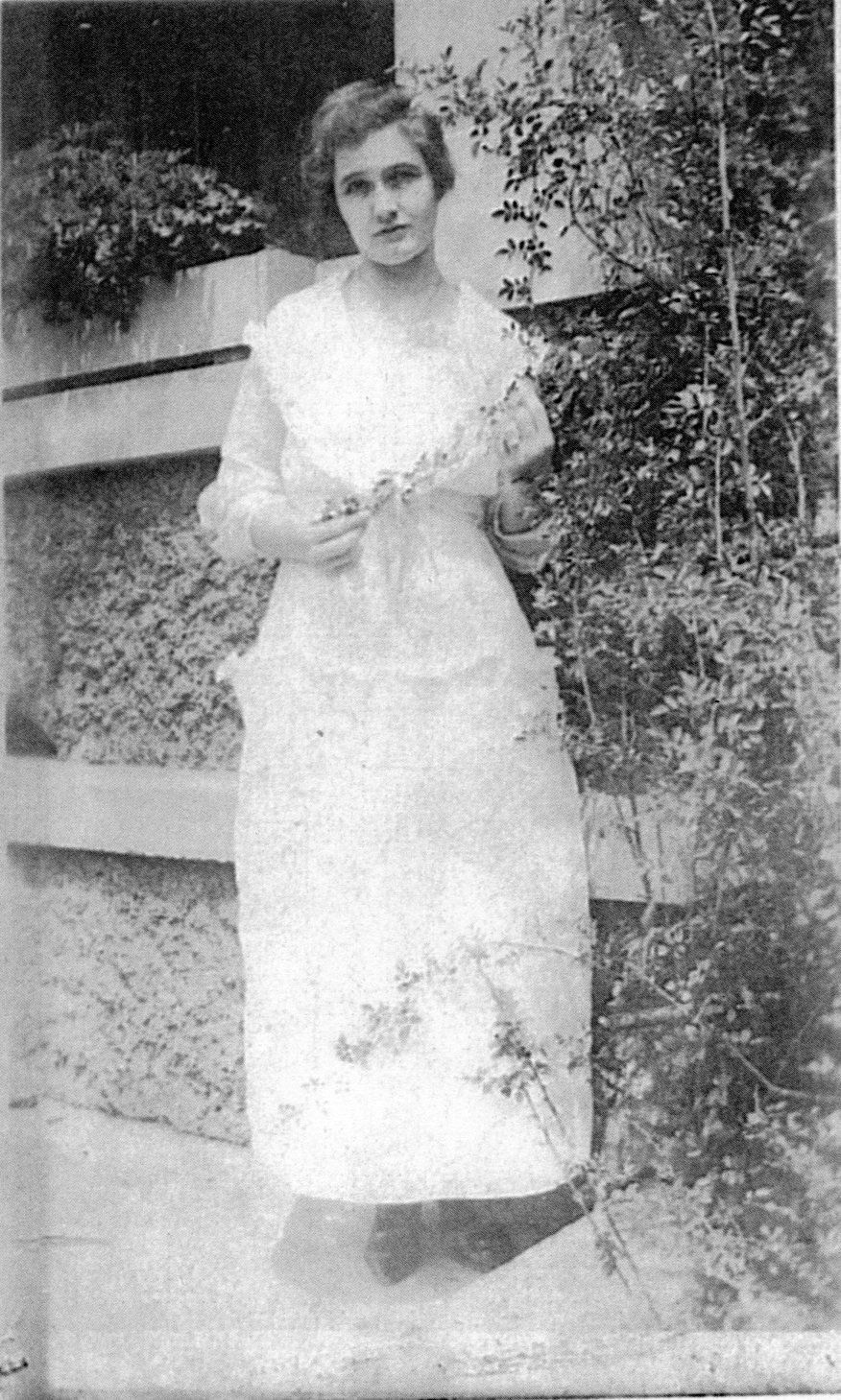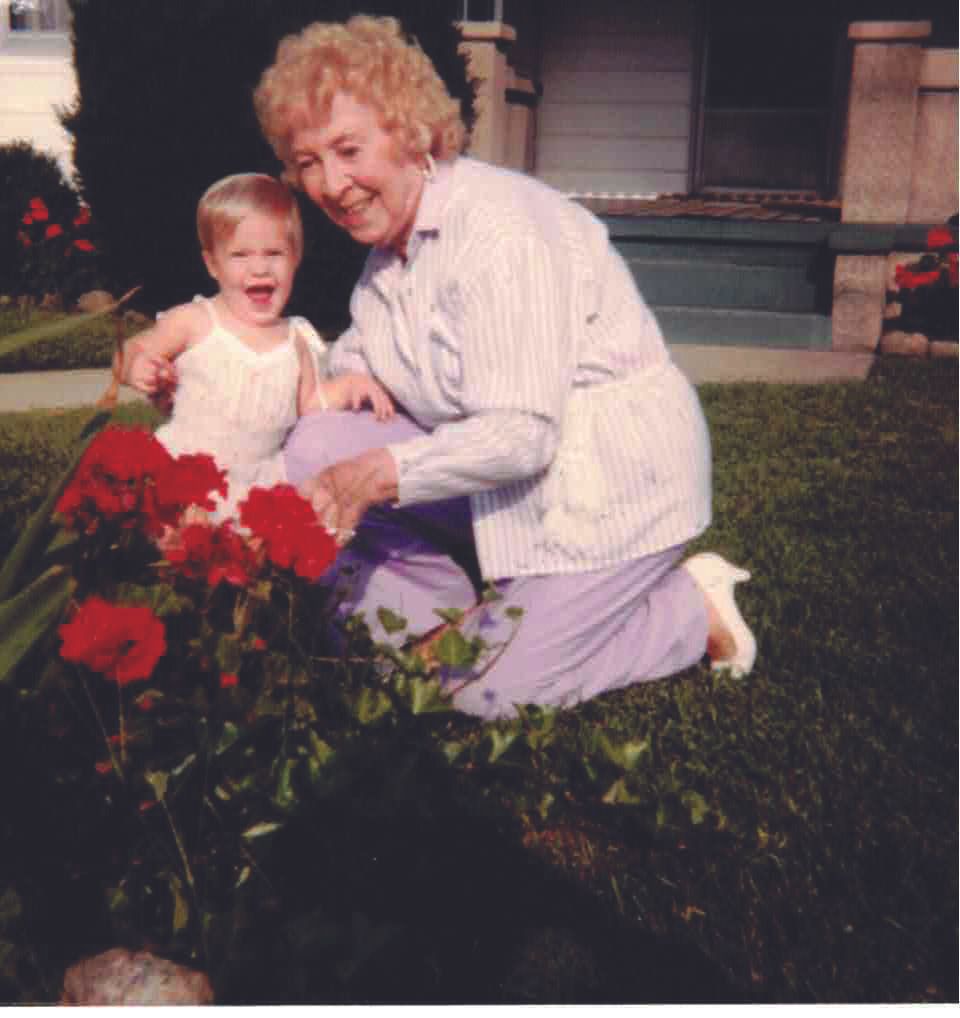Two Civil War Granddaughters
by Diana Loski
Allyene Hurd on her wedding day, 1923
Eloise Midghall, with a young relative, 1985
Rena Eloise Midghall, the second daughter of George and Irene Midghall, was born on April 4, 1908 in Hamilton, Ohio. Her paternal grandfather, an English immigrant, had received three hundred dollars to take the place of a wealthy man who wished to avoid the draft. A gifted musician, John Midghall was the regimental drummer of the 70th Ohio Infantry. He fought at Shiloh, Vicksburg, and Atlanta. He marched with Sherman’s Army to the Sea; he was captured near the Atlantic coast before the army reached Savannah in late 1864. Since Andersonville Prison was closed by that time, Corporal Midghall was sent to languish in the prisoner-of-war camp at Salisbury, North Carolina, where he contracted consumption and suffered with the infection of tapeworms. He managed to survive the war, but was soon too ill to work to provide for his wife, their eight children, and his wife’s sister’s boy – made an orphan during the war. John died a few years later of the disease he contracted while a prisoner of war.
Eloise and her older sister, Ethelyne, barely knew their surviving grandfather, David King, also a Civil War veteran. He died when Eloise was a small child. Ethylene soon followed him to the grave at age eleven. It is believed she died of a ruptured appendix. These two deaths so close together shaped the rest of Eloise’s life, as she remained the only solace to her mother’s grief.
Eloise remembered the Great War and the influenza epidemic that followed. Her mother refused to allow her to go to the library or read library books, as she feared the dreaded disease would be on the books and take her only living child. Eloise was trained in music and studied at the Conservatory in Cincinnati. She also attended Oxford University to earn a degree in Education. She studied with a handsome fellow student named John Pressler, whom she had dated since high school. Her mother didn’t like him. Her father, a kindly and quiet man, did.
Eloise and John Pressler were together for twelve years. When he asked her to marry him, Eloise hesitated. She had just earned her degree to teach school on the eve of the Great Depression. Her parents needed her income, and were she to marry, she would lose her position. She asked John to wait a while longer. He surprised her by abruptly marrying someone else. The shock devastated her, and she suffered a nervous breakdown.
Eloise never married, and lavished her attention on her numerous school students. She taught first grade for many years until her retirement in 1973. She lived in the house where she was born all her life, and took care of her aging parents until they died in 1965 and 1967.
In addition to teaching school and traveling all over the world, Eloise spent much of her free time with a gourmet cooking club. She experimented with new recipes on her distant family – her favorites included desserts and hors d’oeuvres.
Eloise was a pleasant person, and an unusual one. When Allyene’s and Bill’s youngest daughter, Freda, called her one day and asked her to go to the movies, she was surprised to hear Eloise turn from the phone and ask her mother if she could go to the movies. Freda, in grade school at the time, thought, “ My goodness, you have to ask permission at 38 years old?” Eloise also kept nearly $100,000 in her checking account. When asked why on earth she would keep that amount in a regular checking account, she replied, “Oh, you never know when you might need a little cash.”
Her driving skills remained in fairly good condition, even throughout her seventies. She and two of her teacher friends drove Freda's daughter two thousand miles to college for the girl's freshman year in Utah. It was her first time away from home, and it was an experience riding with three elderly school teachers through the plains of Kansas and the mountains of Colorado. Eloise chose historical places to stop on the way: the Harry Truman Presidential Library in Independence, Missouri, the Eisenhower Boyhood home in Abilene, Kansas, and Pike’s Peak near Colorado Springs. When she dropped off the new student with her multitudinous, cumbersome luggage, Eloise placed the suitcases outside the car on the sidewalk, took a picture, and said, “Well, bye!” and drove away. The girl said, "I’ll never forget my astonishment as I watched her go in her old Buick." (Her dorm was on the third floor – with no elevator. She still can't remember how she managed to get everything up there.)
One of Eloise's favorite exclamations was “Fiddle dee dee!” She was using it long before it became Scarlett O’Hara’s catchphrase.
Eloise died at age 96 the last week of June in 2004.
Whenever the family enjoys her old-fashioned colonial puddings, her hummingbird cake or her apple crisp, her light-hearted company never seems far away.
These two Civil War granddaughters knew each other well, and shared years of memories with their myriad tried-and-true recipes. They would be pleased to know that for nearly a quarter of a century, the dishes that were their labors of love continue on for us to enjoy.

Gettysburg, PA



